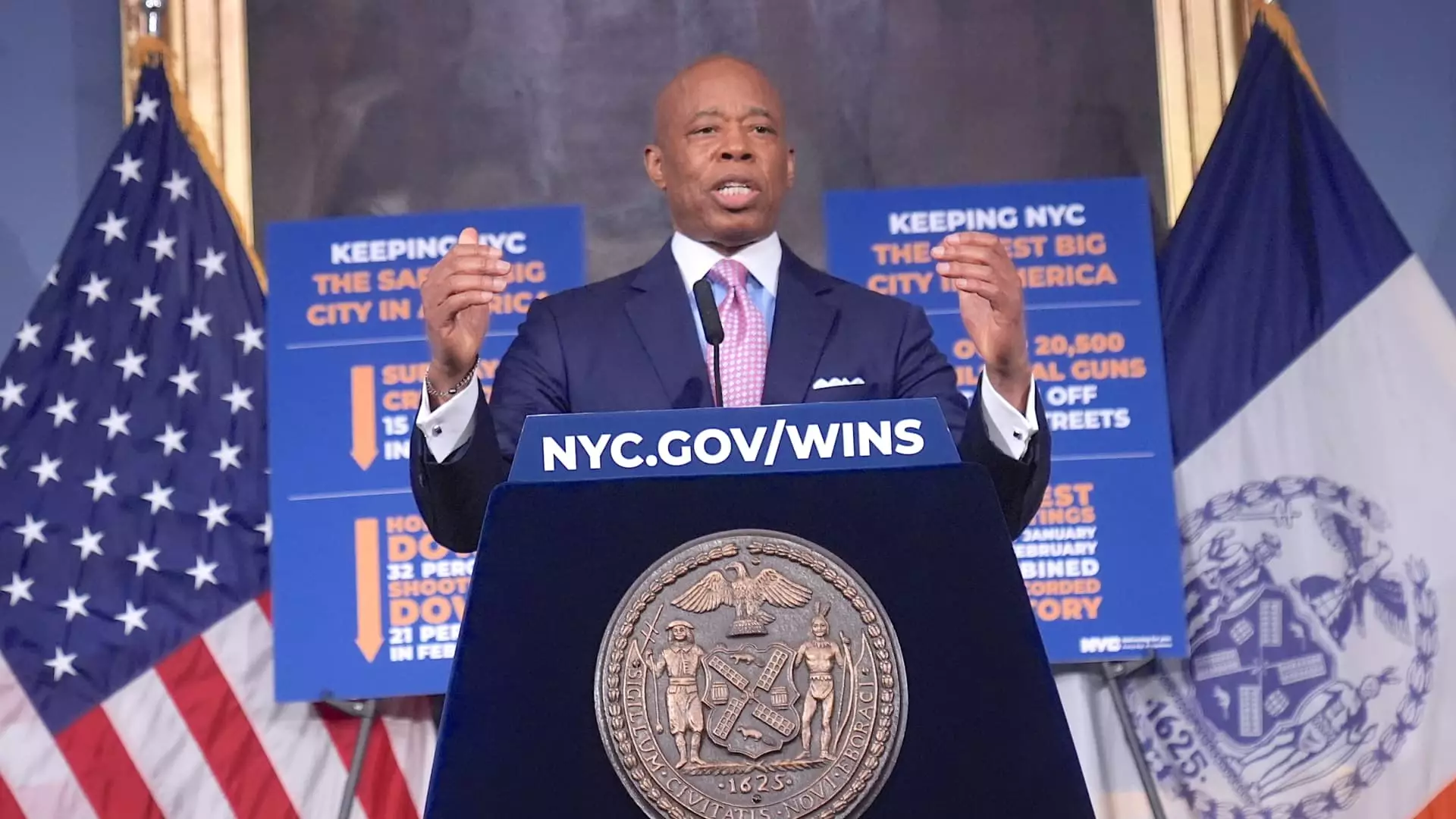Eric Adams, the Mayor of New York City, has taken a bold and contentious step in his political journey by announcing his decision to run for reelection as an independent candidate. This move comes immediately after a federal judge dismissed corruption charges that had loomed ominously over his administration. While the legal clouds have parted, the air remains thick with implications about what this transition really means for the city, its residents, and Adams’ leadership.
This shift in strategy—a pivot away from the Democratic primary just a day after his legal troubles were cleared—speaks volumes about his underlying ambition. Adams casts himself as a voice for the people, proclaiming a commitment to prioritizing the needs of New Yorkers over party affiliations. But let’s be straightforward: this transition reeks of convenience. Such a scramble for self-preservation raises essential questions about genuine leadership and the intentions behind playing the political independent card.
The Legal Shadow and Its Aftermath
The dismissal of bribery and corruption charges against Adams wasn’t merely a legal victory; it was a pivotal inflection point that shaped his campaign strategy. When the U.S. Department of Justice decided to drop the charges, there was a strange amalgamation of relief and skepticism. The judge, U.S. District Judge Dale Ho, posited that continuing with the prosecution could hinder Adams’ governance and impede important federal initiatives. This statement feels disingenuous in light of Adams’ previous associations and the nature of his alleged infractions.
The narrative that he was a victim of political maneuvering is deeply troubling. Adams must admit that he invited scrutiny with his alleged dealings. Luxury hotel stays and extravagant gifts from foreign nationals while in public service should not only raise eyebrows; they should lead voters to question his integrity and accountability. His statement, “I trusted people that should not have,” seemingly lays the blame elsewhere, washing his hands of any wrongdoings without embracing the responsibility that accompanies leadership.
Independent or Isolated?
By opting out of the Democratic primary, Adams claims he seeks to engage with a broader electorate unshackled by party lines. However, this rhetoric of independence often conceals a more strategic, self-serving agenda. One must wonder if his desire to tap into “a solid base of people” across the city is genuinely about inclusion or simply an attempt to avoid the scrutiny that comes with traditional political frameworks.
Theoretically, running as an independent could allow Adams to distance himself from the prevalent chagrin associated with party elites, but political independence often leads to isolation rather than a true connection with constituents. The central tenet of democratic principles is representative governance, and when a politician shifts their affiliations, it stirs doubts about whom they are truly representing. In this case, is Adams executing a carefully orchestrated campaign, or is he effectively retreating from accountability?
The Challenge of Authenticity
It is crucial to acknowledge, though, that New York City deserves leadership that transcends mere political maneuvering, especially given the societal pressures its citizens face on a daily basis. Adams’ declaration that he is “uninhibited” now can’t mask the underlying truth that gameplaying in politics often erodes trust. Appeal to the electorate cannot be founded on a shaky premise of self-interest masquerading as public service.
His strategies risk alienating potential allies while pandering to a form of populism that resonates with some yet deeply reveals his vulnerabilities. It is hard to dismiss the sobering reality that his approach could yield a bitter backlash. The temptation to capitalize on a favorable narrative may obscure the real issues plaguing the city—public safety, housing, and economic recovery—all need authentic, earnest leadership rather than a hastily assembled campaign narrative.
Adams’ claim that he will put his record against any of the competing candidates may have a semblance of confidence, but it begs a closer examination of what qualifies as a commendable record. Voters need leaders who not just boast their credentials but have a track record of ethical governance, transparent decisions, and actions driven by the people’s needs rather than personal ambition.
In this tempest of political recalibration, true leadership is not just a function of winning an election. It is about fostering trust, being accountable, and representing the true ethos of a city as vibrant and varied as New York. Whether Adams can navigate these treacherous waters remains to be seen, but the stakes will inevitably shape the fabric of the city and its future.


Leave a Reply